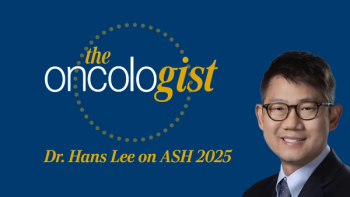
Improving Addiction Training & Support in Medical Fields
Christopher Schenewerk, MD, addresses the taboo topic of how to help health care professionals struggling with addiction.
In an interview with Targeted OncologyTM,
Schenewerk believes the solution starts in medical school. His own addiction training was minimal—he was simply told to attend one AA and one NA meeting. His single AA experience was negative; it seemed disorganized and a waste of time to someone who wasn't an alcoholic at that point. Consequently, he wrongly dismissed AA and even lied about attending an NA meeting. For the next 19 years, until he sought help myself, he never recommended any support group due to that one encounter.
"This was my failing, as more curiosity would have led me to a better understanding," Schenewerk said.
Medical schools need to do more for their students, says Schenewerk. This includes comprehensive education not only on identifying addiction in patients —the signs, how to address their shame, and how to reach out—but also on the importance of self-care. The demands of this profession contribute to a higher suicide rate than the general population, and addiction plays a role.
This focus should continue into residency, Schenewerk says. From medical school through residency and into any healthcare system a person joins, there needs to be an introductory program. This program should clearly outline resources available for those struggling with addiction. It should emphasize anonymity and provide various pathways to help, from outpatient services and support meetings to inpatient treatment. If someone comes forward voluntarily, Schenewerk believes that the system should guide them through the process. If an issue is discovered, the approach should be supportive, framing addiction as a disease requiring treatment, similar to cancer or heart disease. Instead of immediate dismissal, the option of comprehensive inpatient rehab, with established support systems, should be presented. However, if an individual is unwilling to address their addiction to the point where patient care is compromised, then separation from their position may be necessary.
To Schenewerk, the key is to establish a system where individuals know from the outset that they can seek help anonymously and access the necessary support if they are struggling with this disease.









































